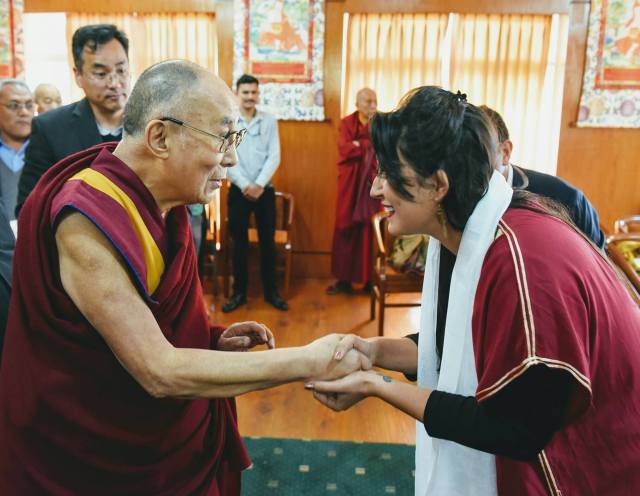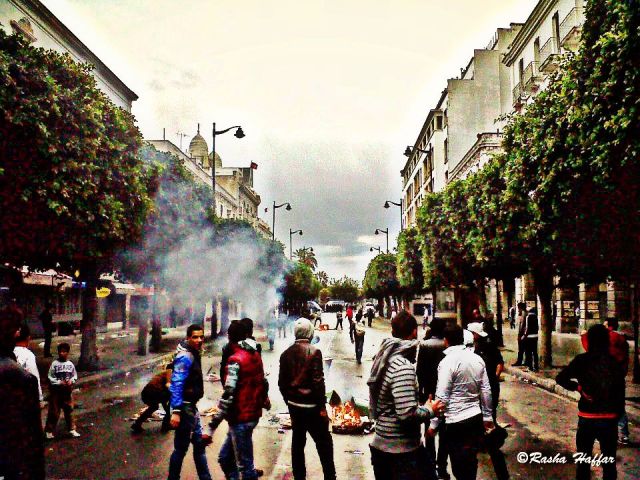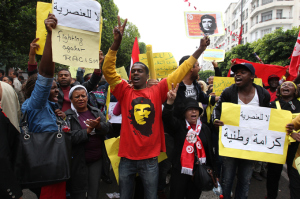Today marks the world day against trafficking in persons. On this occasion, it is important to reflect upon the struggles humanity had to endure for decades in fighting slavery. This practice sneaks back into different societies around the world taking different shapes and forms disguised under what is called today as the modern-day slavery or trafficking in persons. This phenomenon is considered to be the third most dangerous and widespread crime around the globe after the trade of weapons and drugs. What we see today of trafficking in persons is nothing new or different from the prehistoric practices of slavery; as they are two faces for the same coin.
The International Labour Organization estimated that around 21 million people are victims of forced labor worldwide. This includes people exploited sexually or at work. It is worth keeping in mind that the exact number of trafficked victims locally or transnationally is not known for the complexity of this crime.
According to the International instruments and definitions, trafficked people are subject to all kinds of actions they are forced to do. This varies from being held as a hostage with no freedom at all, into not getting the full salary as promised or simply working extra hours. Trafficking in Persons refers to slavery in all its forms. The term ‘trafficking’ itself describes the mechanisms and methods of recruitment and mobilization used to isolate and threaten victims to take advantage of them.
“The most desperate and vulnerable are prey to traffickers. To end these inhumane practices, we must go further in protecting migrants and refugees, particularly young people, women and children, against those who would exploit their aspirations for a better, more secure and more dignified .” Ban Ki-moon, Secretary General of the UN Message 2016.
This phenomenon spares no one, and all countries are subject to it, and the fight continues and varies between countries as some are bigger on the level of being either sources, destinations, or transits.
In History, this practice which was part of slavery was widespread in the Muslim world and in the North African region. Thousand years before the Christian era, Caravans coming from the south, were going towards Tunisia, Kairawan, the capital of Ifriqiyya. From there, slaves were transported to the coastal ports of the Mediterranean.
The black slave was a common phenomenon in Tunisia’s households. In 1841, up to thirty slaves, mostly women, were bought and sold in the Suq al-Birka. As the slave trade developed in the middle Ages, the “intra-African and Eastern trafficking” got spread over fourteen centuries.
In January 1841, Ahmed Bey announced a decree to abolish black slavery in Tunisia. With this decision, Tunisia has become the first Arab country to break with such institution taken for granted since immemorial times. It took five years for the Tunisian abolition decree to come to its conclusion in 1846. The slave market of Tunis was permanently closed in August 1842, and slavery was abolished in the country making Tunisia the first country in the world to abolish slavery. However, slavery persisted until the early twentieth century in the region. It ended at the beginning of the twentieth century, as the last slave market was closed in Morocco in 1920. But today’s average price of a slave equals less than one tenth of its value during the Roman Empire.
In order to understand the situation of trafficking in persons in Tunisia today we need to look at the new, post-revolution context of the country. Since 2011, Tunisia has witnessed political instability, raise of the unemployment rate, social marginalization and growing economic inequalities. These are the main factors that can make individuals more vulnerable to exploitation.
Geographically, Tunisia’s 1,300 kilometers of coastline facing Italy in addition to its proximity to the island of Lempadusa, make it an ideal transit destination for trafficking in persons.
Politically speaking, the revolution of January 14, 2011 forced Tunisia to enter a new phase of political instabilities and the country has been at crossroads since then, which led to the development of trafficking in persons on both national and transnational levels.
Tunisia is now engaged in a process of institutional reform and democratic transition as it is still working on reforming laws. The Constitution of 1959 was revoked, and the new constitution was adopted in January 26, 2014. Following the political assassinations of opposition leaders, this new Constitution faced major challenges and had been the subject of much debate. It addressed topics such as religion and state and women’s rights. These debates were closely monitored in order to better understand the development of public policies in the fight against human trafficking, based on the interaction of gender.
On the legal side, the revolution created some sort of legal vacuum where attempts of placing a new legal framework took long, especially considering the period of adopting the new constitution. Since 2007, the suggestion of a bill of law against trafficking in persons has started and only recently the draft of this law became ready for adoption by the new parliament.
The security system created an even more favorable situation for crimes such as trafficking in persons as it gave more attention to relatively more serious topics such as terrorism and adopted them as a priority and turned a blind eye to the crime of trafficking in persons and forced labor.
When it comes to the socio-economic context, poverty and marginalization are the main reasons for exploitation of people into crimes such as trafficking, as they increase their vulnerability especially women to fall in the hands of traffickers. The country is facing a major economic set back and the Tunisian economic growth seems rather slow. Contrary to urbanized eastern cities, rural western ones still suffer from inequalities in employment and access to social services such as education and health care. With high rates of unemployment which vary between 31% and 48% among graduates, that facilitates the youth becoming victims of trafficking in Tunisia and out. In addition, due to the lack of stable markets and job opportunities in the formal sector, many citizens are employed in the underground economy representing 85% of Tunisian companies, according to the Tunisian Union of Industry, Trade and Handicrafts (UTICA). A recent survey by the National Institute of Statistics (INS) suggests that informal employment represents 42% of total employment in Tunisia, absorbing a very important part of the labor force mainly in trade and services. This situation endangers many Tunisians, and increases the risk of exploitation.
At the social level, 15.5% of Tunisians were under the poverty line in 2010 and 4.6% below extreme poverty. Women and children are usually the most affected by poverty, as it exposes them to the lack of schooling, work at a young age and risky situations. The social, economic and cultural difficulties can push people to leave their area and go to the big cities, and even to leave their countries in search of better opportunities, without preparation or the necessary information for local integration and protection from trafficking networks.
Tunisia as any other signatory party was bound to sign and ratify the Additional Protocol to the UN Convention against Transnational Organized Crime to prevent, suppress and punish trafficking in persons especially women and children (Palermo Protocol), in 2003 to meet a certain level of compliance. The pressure from the UN, EU and US State Department started even before the revolution of 2011. The country found itself going behind others in the region as it hasn’t passed its own national law on trafficking until July 21, 2016, hitting by that a lower status on the scale of Tier placements which is Tier Two Watch List . By this tardiness in passing the national Anti-Human Trafficking law, Tunisia was placed on the Tier 2 Watch List for the fourth time in a row. This makes it sit at the same level with countries like Saudi Arabia and Afghanistan. For this delay and lack in efforts by the Tunisian government, Tunisia was at risk of getting a downgrade to Tier 3 which constitutes countries such as Syria and North Korea.
However, the country received a waiver to remain its ranking due to the significant efforts it put to meet the minimum standards for the elimination of trafficking.
Today, Tunisia celebrates with the rest of the international community the fight against trafficking after passing the Tunisian national law 29/2015 related to the prevention and suppression of trafficking in persons on July 21, 2016.
This law consists of 66 articles, and is in line with international commitments made by Tunisia to meet the requirements of international standards which Tunisia has taken, particularly in respect of the Additional Protocol to the UN Convention against Transnational Organized Crime to prevent, suppress and punish trafficking in persons especially women and children (Palermo Protocol), ratified by Tunisia in 2003.

![]()

